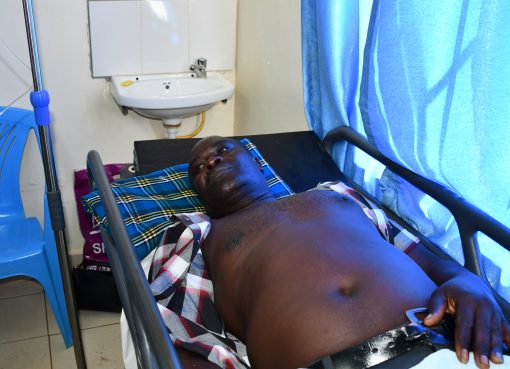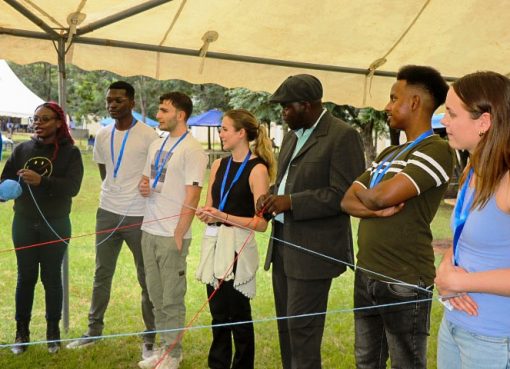The government has embarked on an aggressive public sensitisation exercise on the new Maisha card that is set to replace the second generation identification cards.
Speaking in Dalalekutuk ward, Kajiado township, Kajiado Central Deputy County Commissioner Jamal Mohamud said the introduction of Maisha Namba is part of a broader government initiative to streamline personal identification processes and ensure that all Kenyans have a unique identifier that simplifies record-keeping and access to services.
Mohamud noted that the Maisha card is a digital version of the national IDs and has enhanced security features that make it hard to tamper with or forge.
“The Maisha Namba is excellent; it allows you to access and update your information both digitally and in hardcopy without the need for long distance travel. This means you don’t have to carry a lot of documents as all your data can be accessed on the card,” said the DCC.
Mohamud who led other Government administration officers and Civil Registration officials to sensitize the residents on the new cards said the cards will be issued to new applicants and those who have lost or seeking replacement for their current identification cards.
A 9-digit Unique Personal Identifier (UPI)/ Maisha Namba has been introduced on the electronic ID card for Previously Unregistered Persons.
The Maisha Namba is assigned to every Kenyan citizen at birth and will be a lifelong personal identity number from birth to death.
It will also serve as the birth certificate number for new-borns and as the registration number for government services, including but not limited to enrolment in educational institutions (NEMIS), health insurance (NHIF), and as the National ID number upon reaching 18 years old.
Furthermore, the Maisha number will also serve as a Personal Identification Number (PIN) for Kenya Revenue Authority (KRA) and National Social Security Fund (NSSF) among others.
Upon one’s demise, the same number will translate into one’s death certificate number.
According to Juliet Sita, Sub-county Registrar of Persons, Kenyans with 2nd Generation National ID cards will retain their ID number as their UPI number when they apply for the Maisha Card.
“To all those who had picked their IDs earlier, we will not change their number because it has been registered in many things and it will remain as a Maisha number but for new applicants you will be given a new card with 9 digits,” said Sita.
Siata added that the Maisha card is like a smart card and will have enhanced security details including a microprocessor chip with encrypted data, a photo image of the applicant, a national ID number (Which is the Maisha number), serial number, biometric and geo residential data and which will have an expiry date of after 10 years.
“The smart card will have a chip-like structure which will contain all your information, it will also have your image, your Maisha number, and many more other features,” stated Sita.
She added that the Maisha card is compliant with the International Civil Aviation Organization (ICAO) standards and will enable Kenyans to use it as a travel document within East Africa.
During the meeting, locals gave their views on the Maisha Card with a majority expressing their concern on data protection and calling for the reduction of the renewal fee once the card expires.
The residents said the Sh1000 charged for renewal was too high and urged that it be reduced to Kshs.100 to make it affordable to all Kenyans.
A common question from the public was the difference between Maisha Namba and the Huduma Namba. Officials clarified that while Maisha Namba focuses solely on personal information, Huduma Namba includes comprehensive details about individuals and their families.
By Joshua Mjengi and Ismael Kikon




